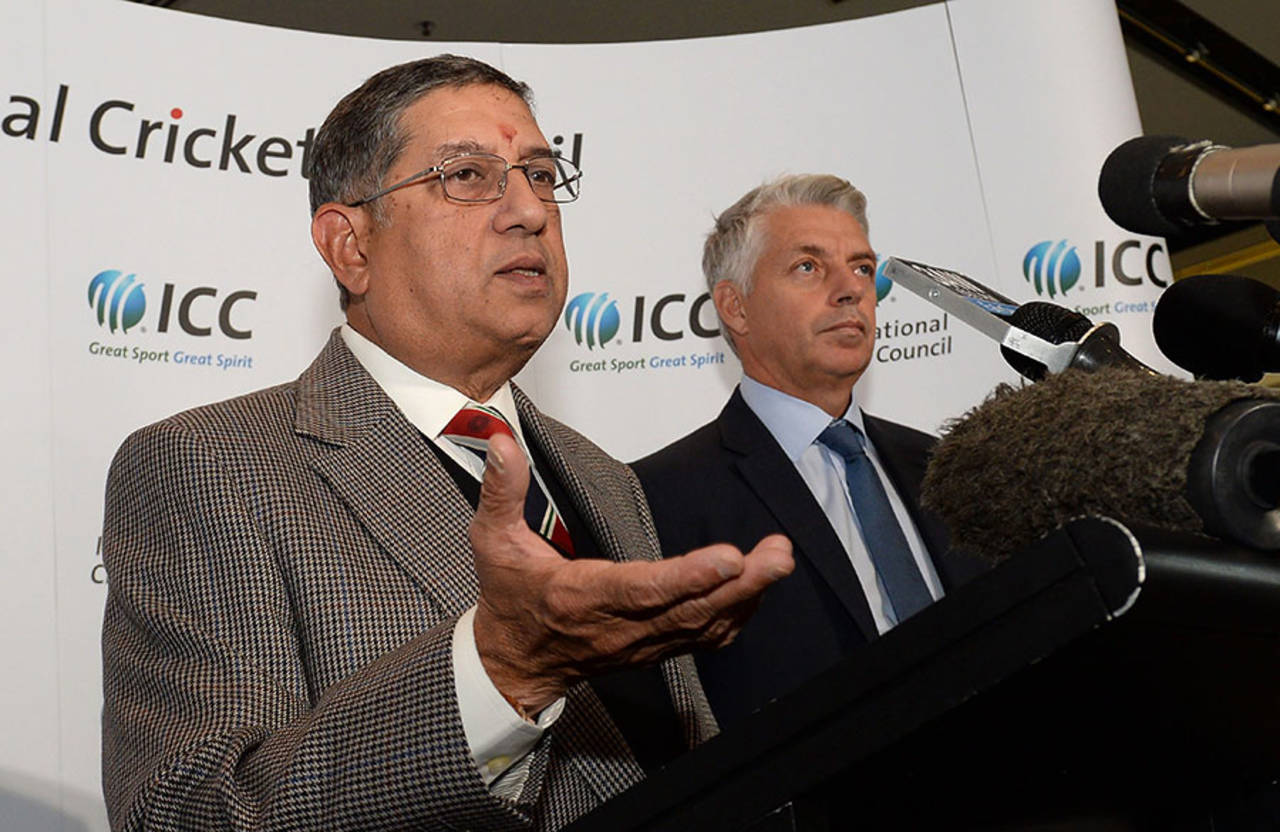Cricket and football team up to fight corruption
Introducing the BCCIFIFA
Alan Tyers
Nov 18, 2014, 6:22 AM

"I promise we will use only the finest quality bleach in all our endeavours" • AFP
A new sporting body is being set up to oversee corruption in world sport: the Board of Criminal Corruption Investigation For Improved Future Administration. Working out of a modest palace in Dubai, the supra-administrative body will look closely at all accusations of sleaze, bribery and malpractice in football and cricket, and have the power to clear senior figures in both sports of any wrongdoing.
"We were massively impressed by the work our football counterparts have been doing on the World Cup bids investigation," said a high-ranking Indian cricket official. "And it struck us that if we in cricket could pool our resources, we could really take whitewashing to a new level."
The newly formed body will have wide-ranging powers including looking the other way, one hand washing the other, and accepting that in some situations a certain amount of wheel-greasing is needed to get things done.
It will feature an executive committee of officials from both football and cricket, headed by Najod Bakhander, the Indian lawyer who rose to international prominence when he argued to the UN that Osama Bin Laden "had no case to answer" on charges of "being a really bad guy".
He will be joined by the Caribbean's Deacus Rolex, the legendary football administrator who became the youngest man to complete football's "allrounders double" when he took delivery of his 1000th wristwatch to go with his 100 briefcases full of used tenners, all before the age of 96.
Regarded as the young tyro of football administration, Rolex will sit alongside Jean-Pierre Malféasance, the veteran powerhouse of European football freeloading. Malféasance cut his teeth in creative sporting administration when he awarded the first FA Cup Final (1872) to the Kennington Oval after a complicated bidding process that saw Wembley miss out in controversial circumstances, and Malféasance become the owner of a really massive load of jewellery.
The trio will have the power to appoint other executive committee members based on experience, capacity for free lunches, and how much potential members will pay to join the executive committee.
Between them, they are expected to usher in a new era of increased transparency in both sports, with all bribes to be delivered in clear see-through plastic to reduce confusion.
The often highly complicated and legally difficult process of rooting out, investigating and successful prosecuting corruption will be streamlined with a simple three-step system: 1) Has the accused got any money? 2) Can we have some? and 3) Nothing to see here, move on everyone.
"Really, it's all about economies of scale," said Bakhander. "Well, and free stuff for us and our friends.
"But yes, economies of scale. There's just no need to have two separate committees finding people innocent of all charges when we could just have one committee letting everybody in football and in cricket off for everything. I'm not a betting man, or at least not unless I know the outcome already, but I'm going to have a few bucks on this being a huge success for all concerned."
Alan Tyers' latest book is Tutenkhamen's Tracksuit: The History of Sport in 100ish Objects. His other book, WG Grace Ate My Pedalo is now out in paperback